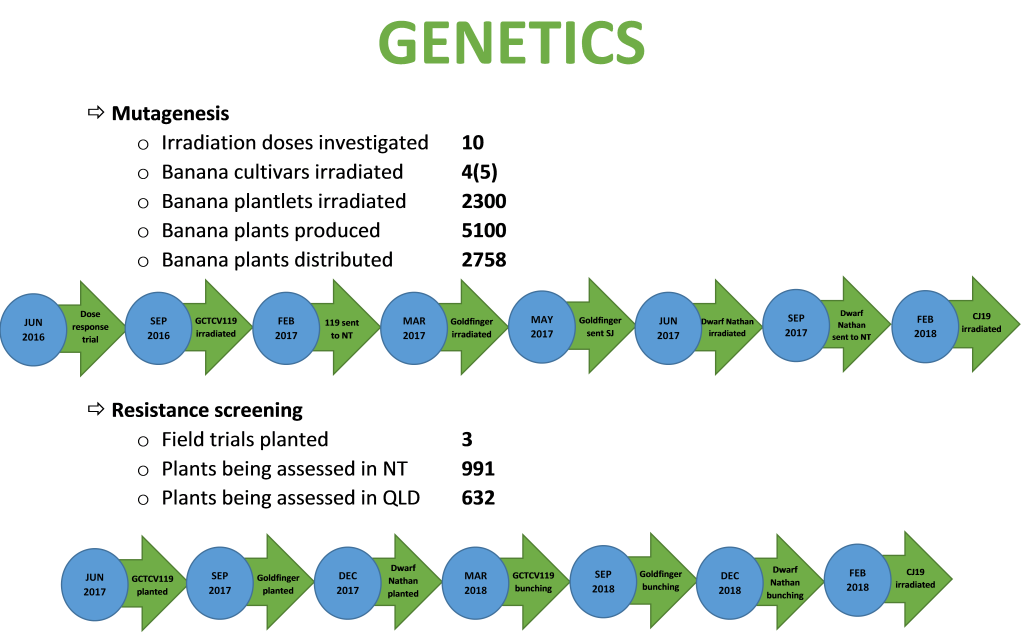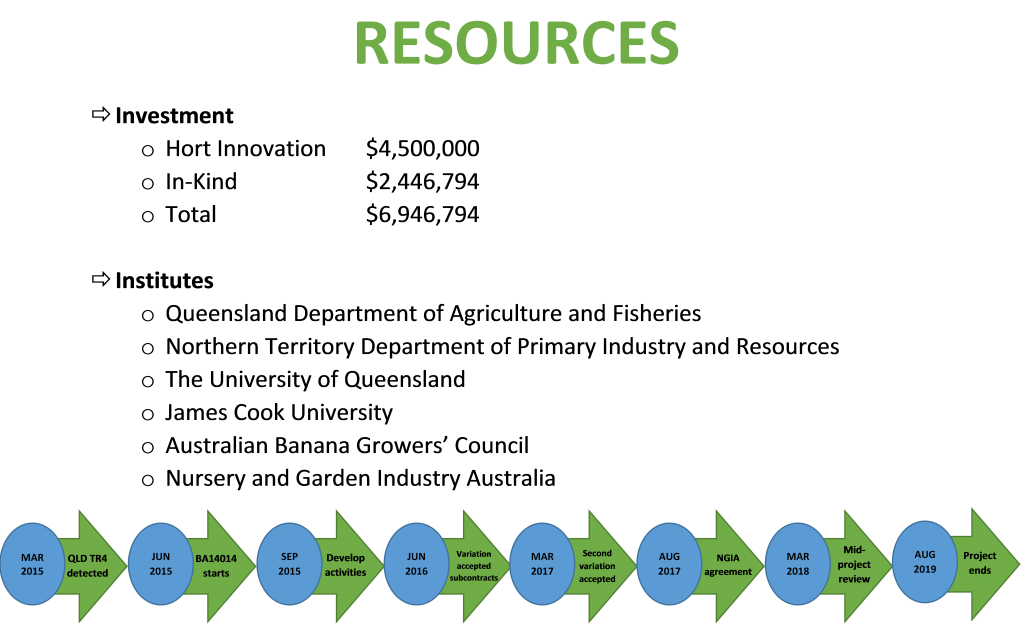By Tony Pattison
The Fusarium wilt Tropical Race 4 Research Program (BA14014) is investigating mid and long term strategies to manage Fusarium wilt (Panama disease) through improved banana cultivars, development of resilient production systems and developing better tools for on-farm biosecurity.
The development of banana cultivars with improved resistance to TR4 is progressing, with the first of the new lines developed by mutation breeding initiating bunches.
After nine months, none of the mutated GCTCV119 lines have shown any symptoms of TR4, while the susceptible controls all have disease symptoms.
Goldfinger, a highly TR4 resistant banana cultivar but with poor consumer fruit acceptance, has also undergone mutation breeding, and the first bunches are now appearing.
Improved fruit eating quality of Goldfinger is a priority, before screening for TR4 resistance.
The next six months will allow superior cultivars to be selected for further evaluation and other mutated cultivars to be tested.
The studies to determine the genetic markers for resistance to TR4, which will allow banana breeders to select resistant lines, have shown a number of anomalies, including multiple disease resistance mechanisms and differences in susceptibility to different strains of Panama disease.
The development of more resilient banana production systems is a key part of enhancing the suppression of TR4 for banana growers without the disease and should the TR4 become widespread protecting partially resistant cultivars from exposure to continually high inoculum.
How Fusarium moves through the banana plant and survives between crops has been a large component of reducing disease inoculum.
Identification of the alternative hosts, such as weeds and their removal could reduce survival of the fungus.
The results from studies on weed hosts is currently being developed into a grower manual.
Additionally, some crops or pasture could reduce the survival of the Fusarium, which is currently being investigated in controlled glasshouse and field experiments.
A key part of developing a TR4 resilient banana production system is knowing how the soil supports soil microorganism to compete with Fusarium.
The physical and chemical soil properties set the framework for soil organisms to exist.
The banana soils of north Queensland have been characterised for 81 different physical and chemical properties and are being ranked on their ability to suppress Panama disease.
The microorganisms that live in the soil, roots and within the plant are undergoing characterisation to determine the core banana microbiome.
Once the core microbiome is established it will be possible to determine how soil type, cultivar and management changes the organism composition in relation to suppression of Panama disease.
Access to clean planting material and on-farm biosecurity is essential to keeping banana farms disease free.
The QBAN scheme for clean banana planting material is undergoing transition to administration by Nursery and Garden Industry Australia (NGIA).
Banana growers will be kept updated about changes in the QBAN scheme.
Furthermore banana growers will have access to greater on-farm biosecurity tools with the development of a Biosecurity Best Management Practices app.
To ensure project outcomes are benefiting banana growers an independent review of the Fusarium wilt research project has been conducted and will direct the final 18 months of the project.
* The BA14014 Fusarium wilt TR4 Research Program is led by the Queensland Department of Agriculture and Fisheries, with funding from Hort Innovation.



